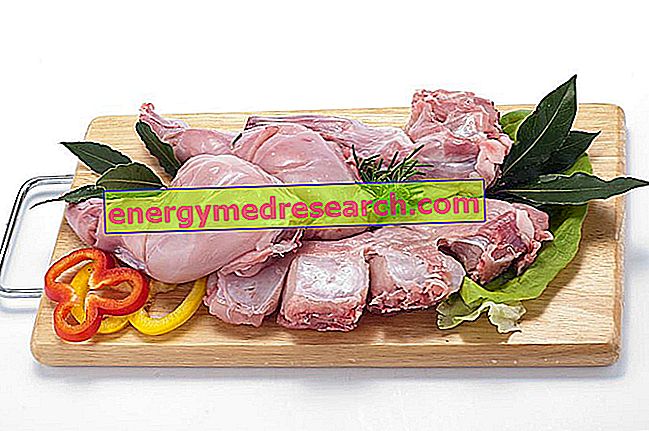What is Kre Alkalyn?

Compared to the traditional monohydrate, in which each creatine molecule is complexed to a water molecule, the Kre Alkalyn would be easier to absorb; in fact the Kre Alkalyn, unlike the monohydrate, enters the digestive tract already "buffered" and therefore does not suffer the negative effect of the gastric acid pH which, in aqueous solution, determines the conversion of creatine into the inactive metabolite: creatinine.
Supplement with Kre Alkalyn
Integration with Kre Alkalyn is intended to increase the muscle reserves of CP, naturally present in the body in quantities of about 120g (value depending mainly on the muscle mass of the subject, where 95% of the creatine TOT reserves are stored); the intake dose for Kre Alkalyn, estimated at around 3g / day, should complement the recommended dietary ration of a sportsman or rather an athlete, naturally including around 2g of creatine per day (reachable mainly through meat). For Kre Alkalyn it is recommended to take 30 minutes before training and on an empty stomach, better if at a distance of 20 minutes from a pro-insulin meal supplement (glucose or other forms of carbohydrate with high glycemic index - IG, possibly accompanied by proteins or high insulin index amino acids].
Obviously, the daily supplementation of Kre Alkalyn (which represents about 2.5% of total creatine stocks in the body) should not be understood as the primary source of creatine intake; in addition to being introduced with the diet, it is effectively synthesized by the body (kidneys and liver) from other amino acids (arginine, glycine, methionine). It is no coincidence that vegetarians seem to have only slightly lower creatine stocks than the rest of the population.
NB . The company that makes Kre Alkalyn has carried out numerous studies with long-term doses of 10g / day; the published works do not reveal any side effects BUT, personally, I believe that these are dosages well outside the advisable safety range. It should be pointed out that, in the case of a low-calorie diet, the constant intake of Kre Alkalyn could even reach 5g / day to compensate for a possible food shortage; however, this is solely a personal consideration. Also on an experimental basis, the possible harmful potential was observed for doses of Kre Alkalyn equal to 20g / day for 7 consecutive days; neither symptoms nor particular clinical signs occurred and this would suggest that it is an acceptable safety limit. Personally, I refrain from suggesting or advising an integrative practice of this entity.
WARNING! The intake of Kre Alkalyn, as well as that of the other forms of creatine, must in no way prescind from the logic and recommendations regarding its use; the Kre Alkalyn, although it is more protected than the monohydrate in comparison with the conversion / hydrolysis in creatinine (catabolite to be filtered and expelled with the urine), if taken in excessive doses it could contribute to determining a chronic and potentially fatiguing renal fatigue if evaluated in the long and very long term. Also remember that Kre Alkalyn, as well as monohydrate or other supplements, is not uniformly tolerated; in some subjects (especially with high doses) it can cause abdominal cramps, nausea, vomiting and diarrhea.
With regard to the above, it can be agreed that the integration with Kre Alkalyn is not RECOMMENDED in case of renal, hepatic and cardiac pathologies, as well as in pregnancy, lactation and in young subjects not yet definitively developed.
Why take creatine or Kre Alkalyn?
The assumption of Kre Alkalyn can significantly benefit the athletic performance of maximum strength and sub-ceilings; the studies reported so far, which however are based on creatine monohydrate (less absorbable), also document an increase in generic anaerobic performance, reduction in the perception of fatigue and improvement in lung ventilation capacity. Furthermore, the collective experience in Body Building suggests that, in muscle-building activities, creatine monohydrate (and probably Kre Alkalyn), in subjects who respond positively to integration, may contribute to fat-free mass increase (FFM ) thanks to the osmotic power of the molecule that promotes the increase of fibro-cellular water retention.
Although not an impartial evaluation, we recall that the manufacturer of Kre Alkalyn (covered by a patent) has conducted and published 4 studies focused on the food integration of its product; the results were "obviously" positive (otherwise, they would not have been disclosed) and can be summarized as: increase in workload (even compared to the consumption of creatine monohydrate), increase in protein synthesis in vitro, absence of side effects, lower creatinine concentrations compared to monohydrate supplementation, lipidemia improvement, VO2max increase compared to monohydrate supplementation.
Objective and unbiased clinical studies on the difference in the integration between creatine monohydrate and Kre Alkalyn
In 2012 an experimental IMPARZIALE (and double-blind) experimental work was published which took into consideration the differences between the creatine monohydrate supplementation and that of Kre Alkalyn in a period of 0-7-28 days (days); the analyzed sample consisted of 36 resistance athletes who were examined: creatine muscle concentrations, body mass, lean mass, fat mass, % body fat, % total body water, maximum strength on thrusts in a flat bench and squat (1 repetition maximum - RM); WAC average power, peak power, or total work; serum lipid levels in blood, markers of catabolism and bone status, status of serum electrolytes, markers for lymphocytes and those for red blood cells.
The content of muscle creatine (analyzed with biopsy) and serum (analyzed with blood sampling) after 7 and 28 days resulted, indistinctly, between monohydrate and Kre Alkalyn, greater than in the previous period. Furthermore, no side effects were noted in either case, which suggests the inexistence of real chemical and physiological mechanisms for which Kre Alkalyn should be "protective" compared to monohydrate.
In conclusion, the use of creatine monohydrate is comparable - in terms of efficacy - to that of Kre Alkalyn, which beyond the clearly higher cost would not seem to bring additional benefits (even with the same intake dose).
Bibliography:
- A buffered form of creatine does not promote greater changes in muscle creatine content, body composition, or training adaptations than creatine monohydrate - Jagim AR, Oliver JM, Sanchez A, E Galvan, Fluckey J, Riechman S, M Greenwood, Kelly K, Meininger C, C Rasmussen, Kreider RB. - Department of Health and Kinesiology, Exercise and Sports Nutrition Laboratory, Texas A&M University, College Station, TX 77843-4243, USA. - J. Int. Soc. Sports Nutr. 2012 Sep. 13; 9 (1): 43. doi: 10.1186 / 1550-2783-9-43.



